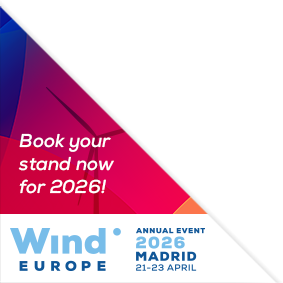Presentations
Siblings:
ProceedingsProgrammeSpeakersPostersContent PartnersPowering the Future stageMarkets TheatreStudent programmeResearch & Innovation in actionProgramme Committee & abstracts reviewersPresenters’ dashboard
Power to Hydrogen Life Cycle Assessment: Method and a Case Study for the United States
Oliver Davies, Head of Onshore Wind & Renewables Performance Lead, OWC
Abstract
The rising expectations for hydrogen as a clean fuel have led to an increasing number of life cycle assessment (LCA) studies on hydrogen-related systems. However, the wide range of methodological approaches and diverse technical characteristics introduces significant variability in LCA outcomes, even for comparable systems. This paper presents a life cycle assessment of hydrogen production via water electrolysis, utilizing various power sources including both traditional and renewable energies. The study covers the entire process from power plant construction and operation through to electricity transmission and hydrogen production but excludes emissions from downstream handling. Greenhouse gas emissions (GHGs) including methane (CH4), nitrous oxides (N2O), and carbon dioxide (CO2) are also evaluated and then converted into CO2 equivalent emissions value using their global warming potentials (GWPs). The case study, focused on hydrogen production in the United States for the years 2020, 2030, and 2050, demonstrates that the emissions from hydrogen production significantly decrease over time. In 2020, emissions are highest due to reliance on fossil fuels but are projected to drop by 24-47% in 2030 and by 77-83% in 2050 with the adoption of renewable energy and stricter emissions constraints. The study highlights the importance of power source composition in reducing hydrogen production emissions. Our work offer valuable insights for stakeholders, enabling informed decisions on energy investments and regulatory compliance. The evaluation supports the establishment of industry benchmarks for emissions and provides a framework for achieving net-zero goals by incorporating renewable energy. The use of open-source databases in our study also enhances transparency and encourages the industry to adopt open data practices to advance sustainability. Attendees will gain insights into how energy source choices affect hydrogen production emissions and how future reductions can be achieved through cleaner energy integration.



